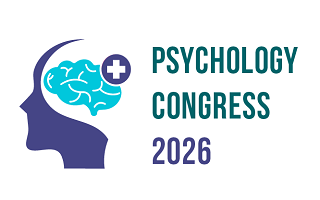3rd International Congress on
Psychology & Behavioral Sciences
March 26-27, 2026 | Osaka, Japan

Address: 5 Chome-3-68 Nakanoshima, Kita Ward, Osaka, 530-0005, Japan.
Psychology Congress 2026

University of Taipei, Taiwan
Abstract:
The integration of mental health promotion and green space planning has become increasingly central to the vision of 15-minute cities, which aim to create accessible, equitable, and health-supportive urban environments. This study conducts a comprehensive bibliometric review to map global research trends, intellectual structures, and emerging frontiers at the intersection of mental health, urban green spaces, and the 15-minute city concept. Using data retrieved from the Web of Science Core Collection, the analysis applies performance metrics, keyword co-occurrence mapping, co-citation networks, and thematic clustering to identify influential countries, institutions, authors, and research domains. Results reveal rapidly growing scholarly attention since 2015, driven by the increasing recognition of environmental determinants of mental well-being and the global shift toward compact, walkable, and sustainability-oriented urban models. High-income countries, particularly China, the United States, and the United Kingdom, dominate research outputs, though emerging contributions from developing regions are observed. Thematically, the literature converges on several core areas: the psychological benefits of green space exposure, spatial planning strategies that enhance proximity and accessibility, environmental justice and inequities in green infrastructure distribution, and the mediating roles of air quality, physical activity, and social cohesion. Despite the expanding evidence base, significant gaps remain, including inconsistent operationalization of green space metrics, limited longitudinal and experimental designs, and insufficient integration of 15-minute city principles into mental health research frameworks. Future studies should prioritize standardized indicators, cross-disciplinary models, and policy-relevant evaluations to support mental health-inclusive green space planning. This review advances a systematic understanding of how 15-minute city strategies can foster mental well-being through evidence-based green infrastructure planning.
Biography:
Yu-Sheng Shen is an assistant professor at the Department of Earth and Life Science, University of Taipei. He is also an assistant professor at Master's Program in Environmental Education and Resources, University of Taipei. His expertise and research interests focus on mental health, sustainability, and urban science. Additionally, he has demonstrated extensive experience in using new technologies and big data analysis. With these studies, Dr Shen has led more than 30 indexed publications
